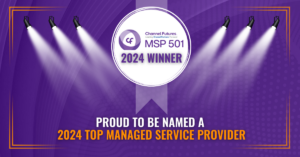How Do You Know If You’ve Been Hacked?
IT consultants in Los Angeles can identify a number of unique features indicating you’ve been hacked. Some are more obvious than others. Certainly, lost resources or buggy network operations indicate a hack, but there’s more to look for as well.
Clear Signs of a Hack Attack on Your Operation
Managed services providers (MSPs) in Los Angeles provide a number of strategies to help you determine if you’ve been clandestinely hacked. Sometimes you don’t realize you’ve been impacted this way. The following are clear signs of a hack attack:
Spam Sent Out from Your Servers
IT consultants in Los Angelescan keep watch on your servers to ensure they’re not sending out spam. Some malware is just adware, and it’s using your network infrastructure to reach further targets. This isn’t good, but it’s a generally benign sort of hacking; MSPs help you fix the issue.
Unauthorized Software Installation, Unfamiliar Software Requests
When software starts cropping up that you never commissioned, or you’re seeing a bunch of software requests from unfamiliar programs, that’s a sign of hacking, and it could be serious. Security concerns such as these should be addressed fast.
Increasingly Slow Internet Connectivity, Antivirus Sites Flagging Your Online Materials
MSPs also caution slow internet connectivity tends to indicate hacking–especially when your device was quite fast before. If you’re getting notifications of antivirus flagging associated with your online materials, that likely also indicates an instance of hacking.
Safeguarding Operations Against Hacks
IT consultants in Los Angeles caution that networks sending spam tend to indicate a hack. Also, if you’re seeing unfamiliar software requests and software installation that hasn’t been sanctioned, you’ve likely been hacked. Lastly, slow internet and being flagged by antivirus sites are clear signs of a hack attack. If you see these things, you’ve been hacked. For assistance and to learn more about how to protect your business or how to deal with a cyberattack, reach out to us at Advanced Networks.




